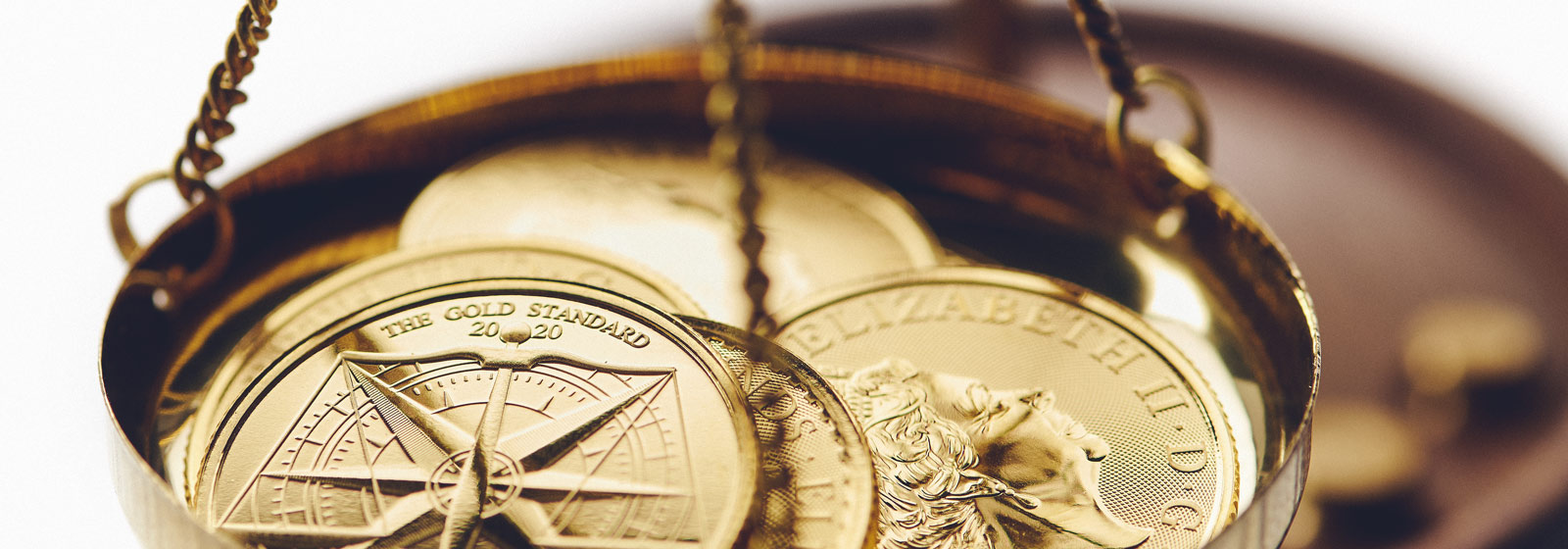As the price of gold can vary significantly, even over a very short period of time, many ask ‘when is the best time to get into gold?’. As you can imagine, with all the possible factors which can influence the precious metal, this is actually a fairly complex question. To try and answer it, you’ll have to decide on four key factors:
- What do you think will happen to the price of gold in the short term?
- What do you think will happen to the price of gold in the long term?
- Are you investing in gold to secure your portfolio against unexpected events?
- Are you investing in gold to make short term profits?
What Types of Events Affect the Gold Price?
Historically speaking, gold prices go up sharply when an unexpected or somewhat unpredictable event occurs, which increases uncertainty over future economic or political prospects. This could be something as significant as the outbreak of conflict or war but could be something less drastic and more ‘short-term’ such as an unexpected election or referendum result. Events which are unexpected often result in a knock-on effect on the financial markets, which can have an effect on gold.
If something unforeseen happens and the values of other investments such as shares all begin to fall at once, many investors may choose to sell out as quickly as possible and turn to gold. Their main goal is to ensure that they have something of value when events reach some kind of conclusion. This often leads to increases in the price of gold, because there is only so much gold produced every year, and it cannot quickly be increased in response to prices.
On the other hand, gold prices tend to rise more gently when world events and markets are merely uncertain. If no one knows for sure whether they are certain to profit by investing in businesses, commodities or land, they may choose to increase the percentage of their portfolios in investments viewed as ‘safe havens’ such as gold. This can then increase the price of those ‘safe haven’ investments, but in a more gradual manner.
In contrast, certainty and prosperity (on a global scale) tends to drive the price of gold down. In the very first part of this century, the world was a fairly prosperous place. There were no major wars and relatively few minor ones. There were hundreds of ways investors could expand their portfolios and feel that they were guaranteed a good return. As a result, investors put relatively little of their portfolio into securities, and the price of gold was lower than it is today.
Gold Buying Strategies – Security vs. Speculation
Different people invest in precious metals and other securities for different reasons, and in hopes of achieving different outcomes. No one strategy can really be said to be ‘better’ than any other. Before you can decide when to invest in gold, you need to determine for yourself just what you hope to achieve with it.
There are two prime motivators which people cite for investing in securities like gold – security and profit.
Speculation – Buying Gold for Profit
Some investors may choose to invest in gold and other securities in order to focus on short-term fluctuations. This method is more like traditional stock trading – in essence, investors are trying to ‘buy low, sell high’. However, it demands a lot of expertise, judgement and luck to give the best chance of making a profit.
Ultimately, this method requires you to be able to judge just when the price of gold is likely to increase and over what length of time this may take place. If you had a crystal ball and knew about the recent economic collapse back in April 2001, you could have bought gold at less than £180 per T/OZ. If you also happened to know when it was going to peak, you could have sold it all for around £1,150 per T/OZ in August of 2011, more than 6 times your original investment.
The problem with that strategy is the utter lack of working crystal balls in today’s society. Even true experts who have decades of schooling and practical experience trading gold have a fairly low success rate at choosing that perfect moment.
When should I buy gold if my goal is to sell it for profit?
Many would suggest that the key to buying for speculative purposes is buying not just when prices are low, but when they are likely to rise. If you are convinced that the housing bubble is about to collapse again or that the NATO/Russia situation is about to turn very bad, it might be a good time. Then again, it might not. Before making any investment decision, you may wish to seek advice from your financial, legal, tax and accounting advisers. You should carefully consider the risks associated with investing in bullion, taking into account your own individual financial needs and circumstances.
It’s like they say, “don’t bet the farm unless you can afford to lose the farm.”
Security - Buying Gold for Stability
From a historical perspective, gold prices tend to move independently and often contrary to movements in the price of other assets. Therefore, if the value of all your shares, property and other investments goes down, the expectation is that the price of gold will not move the same way and may well rise to offset some of your losses. Furthermore, physical gold in your possession has no counterparty risk (unlike savings stored in the account of a bank that may fail, or shares in a company that could go into liquidation), and is therefore viewed as even safer in the event of extreme economic stress.
For this reason, it has been considered a ‘safe’ investment strategy to commit some of your portfolio to gold because its value may increase in the kind of economic climate that would see your other investments lose value. In this model, you aren’t investing in gold to increase your portfolio’s value, but to guard against sudden losses of value elsewhere in the portfolio. Various models and analyses have proven this to enhance long term returns for investors compared to a portfolio that does not include gold.
It is because of this that many market commentators, including the World Gold Council, recommend that holding up to 10% of an investment portfolio can protect and enhance performance.
When should I buy gold if my goal is to use it as security?
Timing with this goal in mind is less important than for the speculative approach, as this is a longer term strategy. If you agree with the views put forward above about gold’s value as part of a portfolio to guard against shocks to other investments, then any time would be a good time to buy gold.
As above though, before making any investment decision, you may wish to seek advice from your financial, legal, tax and accounting advisers. You should carefully consider the risks associated with investing in bullion, taking into account your own individual financial needs and circumstances.





